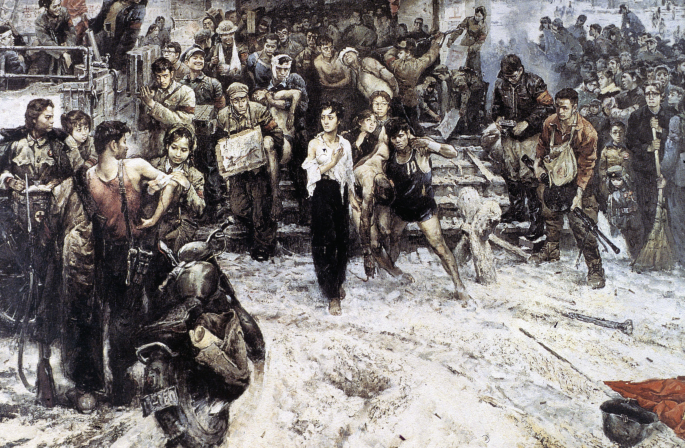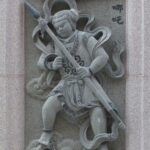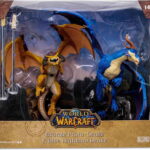The Rebellion Against Authority: Nezha, Hamlet, and Prometheus
Rebellion against authority has been a recurring theme in mythology and literature across cultures. The defiance of Nezha against his father, Li Jing, in Chinese folklore, shares striking parallels with Western figures like Hamlet and Prometheus. This article examines the cultural and philosophical underpinnings of these rebellions, exploring how Eastern and Western traditions interpret acts of resistance against oppressive authority.
Nezha’s Defiance: Loyalty, Filial Piety, and Cosmic Justice
In Chinese mythology, Nezha’s rebellion against his father, Li Jing, is a complex tale of filial piety, cosmic justice, and personal sacrifice. Born from divine origins, Nezha challenges his father’s unjust rule, embodying the Confucian tension between loyalty to family and moral righteousness. Unlike Western narratives, where rebellion often stems from individualism, Nezha’s defiance is framed within a collective moral order—his resistance ultimately serves a higher purpose rather than personal ambition.
Nezha’s story contrasts with Western figures like Shakespeare’s Hamlet, who hesitates due to moral ambiguity, or Prometheus, who defies Zeus for humanity’s sake. While Nezha’s rebellion is fierce, his eventual submission to cosmic balance reflects Eastern values of harmony. In contrast, Western rebellions often end in tragedy or eternal punishment, highlighting differing cultural attitudes toward authority and defiance.
Western Rebels: Individualism, Tragedy, and Eternal Defiance
Western literature, from Greek mythology to Shakespearean drama, portrays rebellion as deeply personal yet politically charged. Hamlet’s struggle against his usurping uncle transcends mere vengeance—it symbolizes existential doubt and the burden of action. Prometheus, who steals fire for mankind, represents intellectual defiance against tyrannical gods, punished eternally yet remaining a martyr for human progress.
These Western rebels highlight themes of existentialism and moral absolutism, where defiance is often punished but revered as heroic. Unlike Nezha, whose story ultimately reintegrates him into divine order, Western figures remain fractured—either through death, as with Hamlet, or eternal suffering, like Prometheus. This dichotomy reveals how rebellion is framed: as a necessary but costly disruption in the West, while Eastern traditions may seek reconciliation.
Conclusion
Rebellion against authority takes on vastly different meanings in Eastern and Western narratives. Nezha’s defiance, rooted in cosmic balance, contrasts sharply with the tragic individualism of Hamlet and the martyrdom of Prometheus. While both traditions explore resistance, their resolutions differ—Western stories embrace permanent rupture, whereas Eastern storytelling often seeks harmonious reintegration. Understanding these distinctions enriches our appreciation of how cultural values shape tales of defiance.


